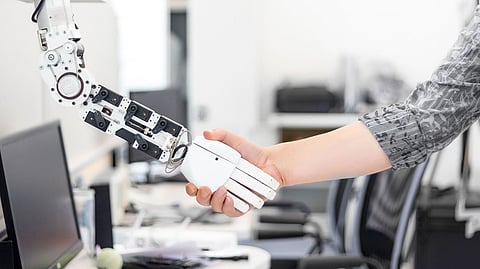DHL Trend Report: Future of Work in Logistics
DHL's The Future of Work report examines how the concept of work – the roles, responsibilities, systems, schedules, tools, and environments of workers – will change over the coming decades.
Shifting demographics, technology advancement, digitalisation, and the COVID-19 pandemic are greatly transforming work in the logistics industry.
Humans working collaboratively with robots, flexible work systems, and continuous learning and upskilling will help businesses future-proof, stay competitive, and attract and retain the workforce of the future.
After slow growth in the last two decades, the uptake of industrial robots is set to increase globally almost seven-fold to 20 million by 2030.
This will have a major impact on industries, including logistics, and transform today’s way of working. Other key drivers influencing the future of work include:
The aging workforce and the subsequent labor shortage on a global scale.
The rise of millennials and Gen Z as they gradually replace retirees, seek jobs with more purpose and less repetitive tasks, and intentionally select employers with more flexible and value-driven work environments.
COVID-19 introduced significant change as many businesses quickly embraced hybrid work policies and remote-work technologies that existed for years.
Human-machine Collaboration
Human-machine collaboration will accelerate as robots are used in more supply chain steps and the safety buffer between humans and machines is optimized further.
DHL and Christy Ng Unveil Eye-Catching Collection Inspired By Couriers
More employees are gaining exposure to and familiarity with robots as machines expand in breadth and diversify, handling tasks from picking online orders with robotic arms to processing customs documents through workflow automation software.
With improved sensors and machine learning, humans can safely engage in collaborative work with minimal risk.
The Flexible, On-demand Workforce
Further accelerated by the pandemic, the flexible, on-demand workforce will be a future model within the logistics industry, affecting both operational and office positions.
As logistics is a labor-intensive industry highly sensitive to fluctuations in the global economy, matching the optimal number of workers to operational demand is one of its biggest challenges.
Here, mobile apps and dynamic staff scheduling software can match temporary workers with facilities and shift where demand is high, and are likely to become commonplace in the near future.
Training and Upskilling
Training and upskilling will be crucial for businesses to stay ahead of the curve in the new era of work. Many are realising they can no longer rely on externally hiring for required skills and instead will benefit from training existing employees, developing talent, and promoting internally, all the while boosting company morale and attracting incoming recruits.
Download the full report here.
Read More: DHL Launches First-of-its-Kind Mobile Innovation Center in Dubai South


